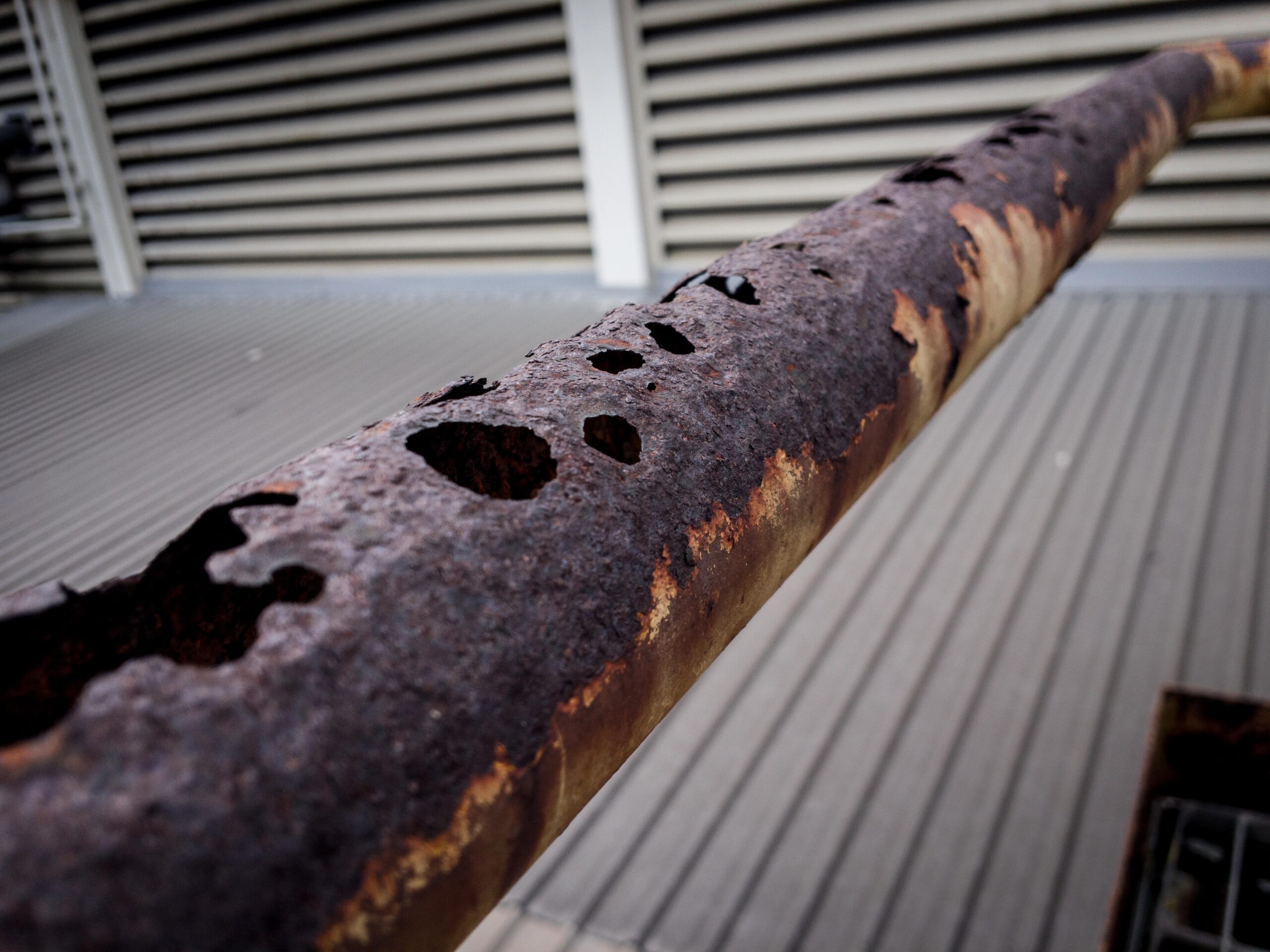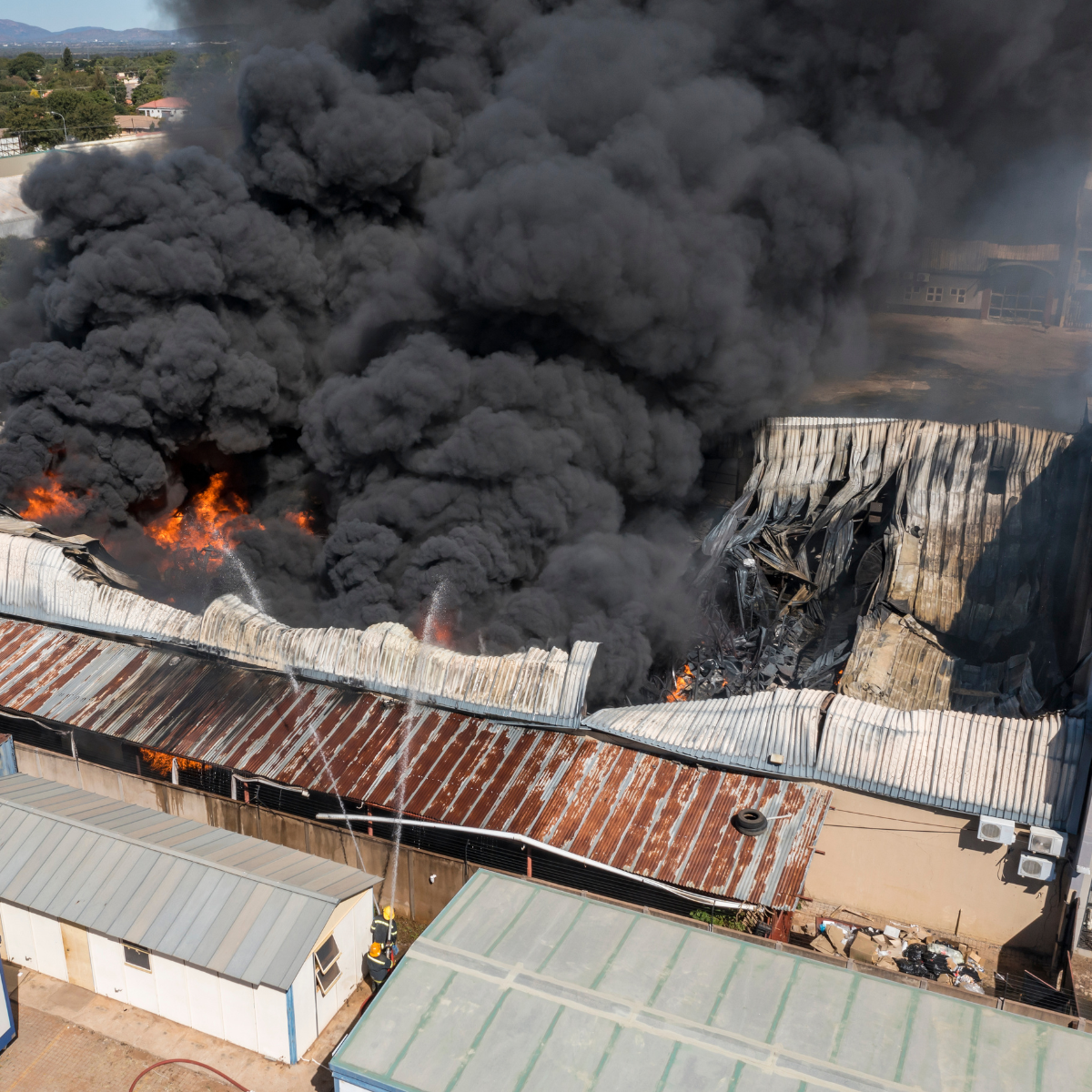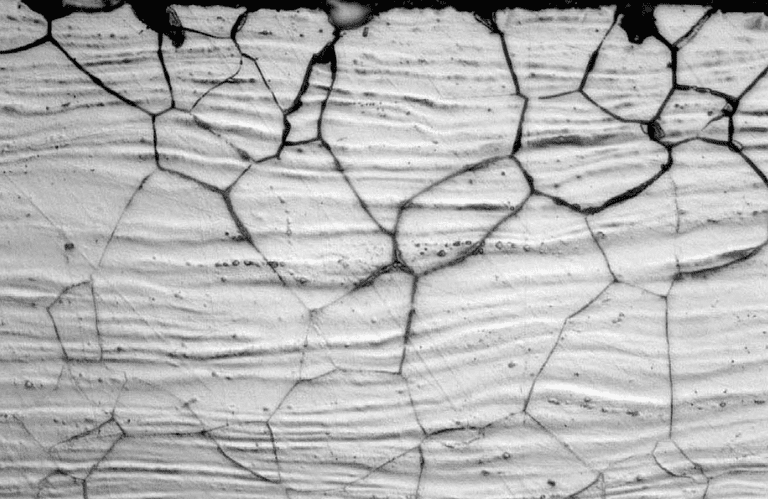Metallography
Metal Failure Analysis and Investigation
Our Failure Analysis and Investigation services uncover the causes behind metal failure, looking at what went wrong and how to prevent future issues.
Explore how we work
Interested? Let’s talk.
Send us an enquiry
What is Failure Analysis?
If your products or components have failed, it’s important to understand why. Without proper investigation, the same issues could happen again. Not only is it costly to keep replacing products and components, but it can also risk the productivity and safety of your operations.
Failure Investigation and Root Cause Analysis helps to identify the root cause and nature of failure. Metal fatigue failure can happen for many reasons:
- Design flaws
- Material defects
- Operational stresses
- Heat treatment processes
- Misapplication of the component
As a trusted advisor, our team combines deep technical knowledge and advanced product Failure Testing to deliver clear, actionable insights you can trust.
Whether you’re facing a production setback, quality issue, or safety concern, we’re here to assist you. We’ll work with you to identify underlying factors contributing to failure and help you implement effective solutions.

Who we've partnered with...





Key benefits of Failure Analysis
Improve safety
Drive safety initiatives by identifying types of metal failure and mitigating risks before they can cause further issues.
Ensure legal compliance
Reduce the risk of legal action by detecting and addressing similar failures before they lead to accidents.
Streamline insurance claims
Gather the evidence you need to support insurance claims, with detailed feature and metal Failure Analysis.
Product innovation
Use insights from Failure Testing to enhance future product designs and minimise the chance of repeat failures.
Let's talk about Failure Analysis and Investigation
Send one of the team a message
Not seeing what you expected?
Try using our search
Explore what our clients say
How we'll work with you
Metallurgical Failure Analysis is crucial for understanding why machines, components or raw materials fail, particularly in cases of injury or legal dispute.
As a fully independent laboratory, we conduct in-depth root cause analysis investigation for you and your customers. We trace failures back to their root cause, helping you enhance safety and reliability. Our findings can support quality control, compliance reviews, and even legal cases if required.
How to prepare for a Failure Investigation
To begin, we need details about the failure, including the part history, material type, processing technique, service conditions (temperature, pressure, humidity), exposure to chemicals, and events leading to the failure.
Beginning the investigation
Once we have the necessary information, we’ll provide a quote, lead time, and instructions for sending your samples. We’ll then begin our metallurgical Failure Investigations once we receive a sufficient sample or part of the component.

Why is Failure Analysis Testing important?
Understanding the mechanisms behind metal fatigue failures is key to improving your product design, material selection, and maintenance strategies. This leads to better safety practices, reliability, and cost-efficiency.
We investigate failure on a variety of components like bolts, welds, pipework, machinery, metal structures, or consumer products, to prevent future breakdowns and enhance performance.
Common failures we have investigated:
Metal fatigue: Repeated stress causing cracks and fractures in weak points like sharp corners or weld joints.
Corrosion failure: Exposure to harsh environments which weakens metals and leads to premature cracks.
Stress-related cracks: Components that have exceeded their strength limits, results in metal deformation.
Hydrogen embrittlement: Internal weakening of metals due to hydrogen exposure.
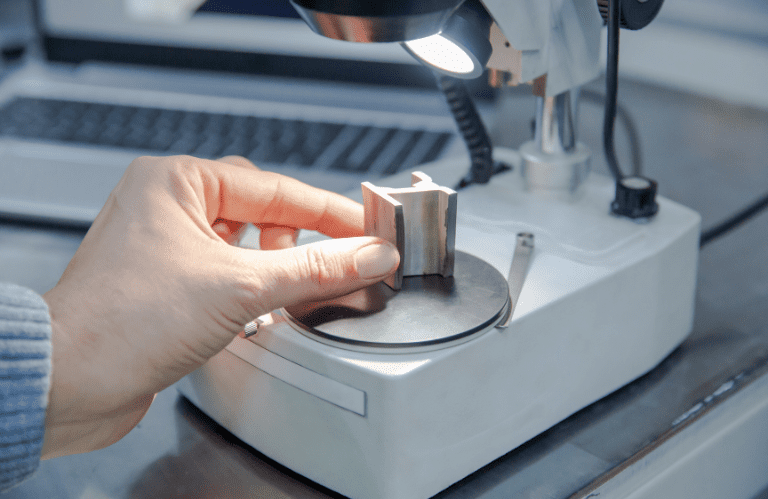


Failure Analysis and Investigation Process
Speak to us about the processUsing a variety of Mechanical, Chemical, and Metallurgical Tests, we can identify the root cause of metal failures.


Let’s talk. Ask us anything.
Send one of the team a message
Why choose BES Group?

800+ expert engineers
Our team of skilled engineers possesses a wealth of expertise.
A legacy of 160+ years of experience
We’re always evolving our approach to future proof our services.

35,000 satisfied customers
A strong reputation for providing exceptional service.
Frequently asked questions
What do Failure Analysis Reports include?
A Failure Investigation report includes detailed explanations on the root cause and nature of failure, the tests carried out, and the data achieved from these tests.
We ensure you can fully understand the results and know what action to take. We can help advise and make recommendations, so you have reliable solutions in place to avoid future failures.
How long does Failure Analysis take?
The duration of a Failure Analysis varies depending on your needs. We’ll consider the complexity of the failure, resource availability, and extent of testing when organising your Failure Analysis.
Not all investigations require full testing processes, so some can be completed within a few days. Others may take several weeks or months if they require more thorough investigations.
Once we’ve gathered all the information, our experts can tell you how long the investigation is likely to take. As always, we’ll aim to carry out our investigations with as little disruption to your operations as possible. To arrange expert Failure Analysis, get in touch with our team.
What happens if I don’t conduct a Failure Investigation?
If a Failure Investigation is not conducted after the failure of a product or component, several critical issues may arise:
- Non-compliance to standards: Without a thorough investigation, it’s difficult to know whether a product or component meets international standards, which could raise concerns about its quality and safety.
- Legal implications: If the failure results in accidents, you could face lawsuits. Not investigating the failure could result in non-compliance with regulatory requirements and leave you at risk of lawsuits or fines.
- Risk to other products: The root cause of the failure might be applicable to similar products or components. Without investigating, other products with the same issue may also fail, potentially causing further problems and increasing the risk to safety.
Failure Investigations help mitigate these risks by identifying the underlying issues, ensuring compliance with standards, and preventing future failures.
Can Failure Analysis be used for legal or insurance purposes?
Yes, Failure Analysis can be used for legal or insurance purposes, especially in cases involving product liability, property damage, or personal injury claims.
Failure Analysis can help provide supportive documents and evidence for your claim. If needed, our experts can provide testimony and evidence in legal proceedings to help with litigation or material failure claims.
What is Fatigue Failure in metals?
Fatigue failure in metals occurs when a material repeatedly experiences fluctuating stresses. This can create cracks that gradually grow until the metal breaks.
Mechanical Failure Analysis helps identify fatigue failure by examining the fracture surface for fatigue features. It also involves assessing the metal’s stress history and pinpointing underlying issues such as design flaws or manufacturing defects. This thorough examination helps diagnose the problem, prevent future failures, and enhance component reliability.
What sectors benefit from Failure Investigations?
Failure Analysis is crucial across various industries to enhance safety, reliability and cost efficiency. Some key industries that use our services include:
- Manufacturing
- Construction & Infrastructure
- Oil & Gas
- Aerospace
- Automotive & Transportation
- Power Generation
- Medical & Healthcare
- Marine & Offshore
- Consumer Products
What is analysis of metallurgical failures?
Metallurgical failure analysis involves investigating failed metal components to identify the reasons behind their failure. This process helps in understanding the failure mechanisms and implementing measures to prevent recurrence.
What failure analysis methods do you use?
We use a range of destructive testing methods to determine the root cause of metal failures. Our primary methods include:
- Visual Inspection
- Chemical Analysis (ICP-OES or Spark-OES)
- Corrosion Testing
- Fractography
- Metallographic examinations
- SEM/ EDX Analysis
- Hardness Testing
- Tensile and Impact Testing
Let's talk about Failure Investigations
Send one of the team a message
Sectors we service
Dive into the diverse landscapes where BES Group sparks innovation and drives impact.

Explore sector
Aerospace and Defence

Explore sector
Agriculture

Explore sector
Automotive

Explore sector
Building, Properties and Real Estate

Explore sector
Consumer Products

Explore sector
Insurance

Explore sector
Manufacturing
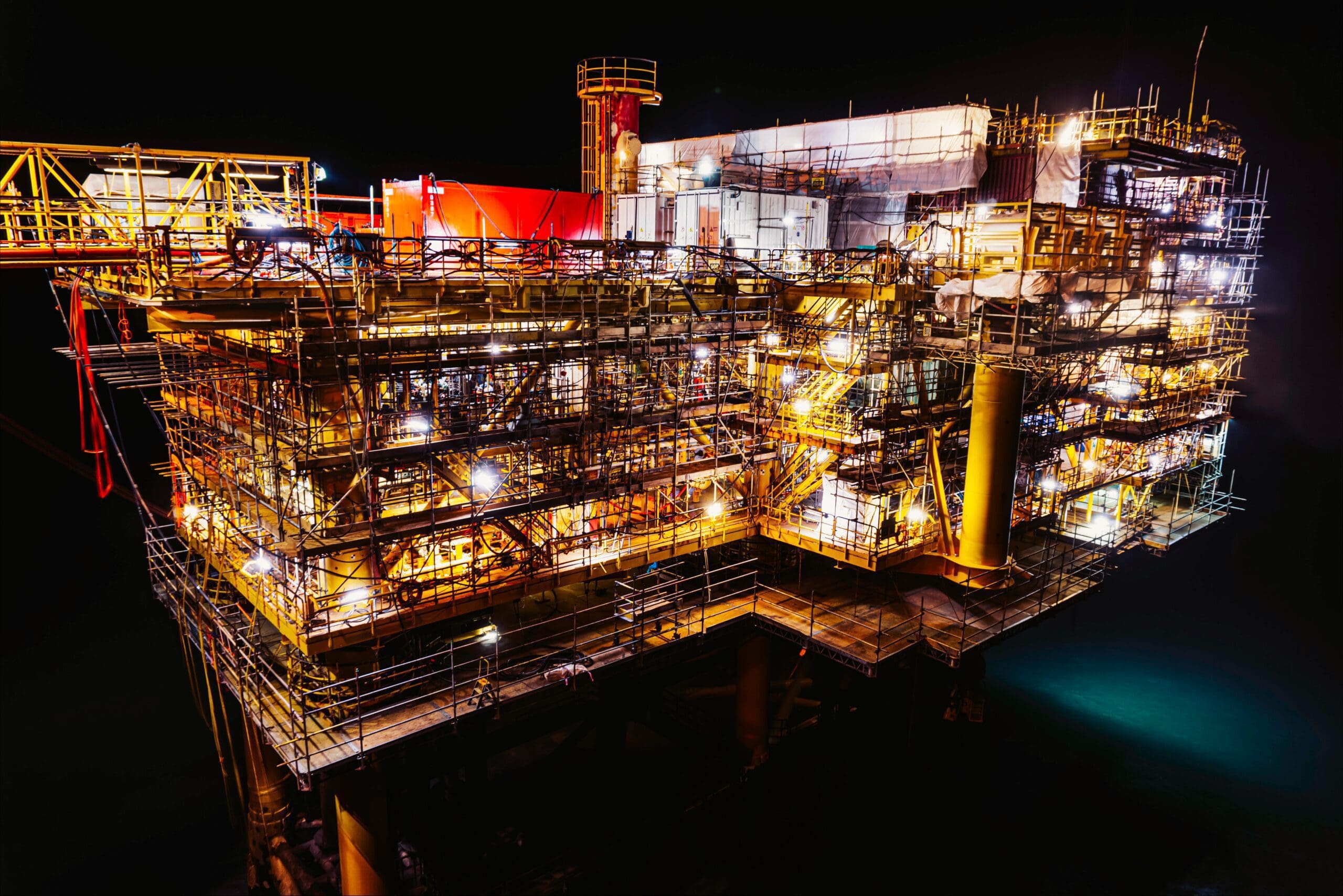
Explore sector
Marine and Offshore
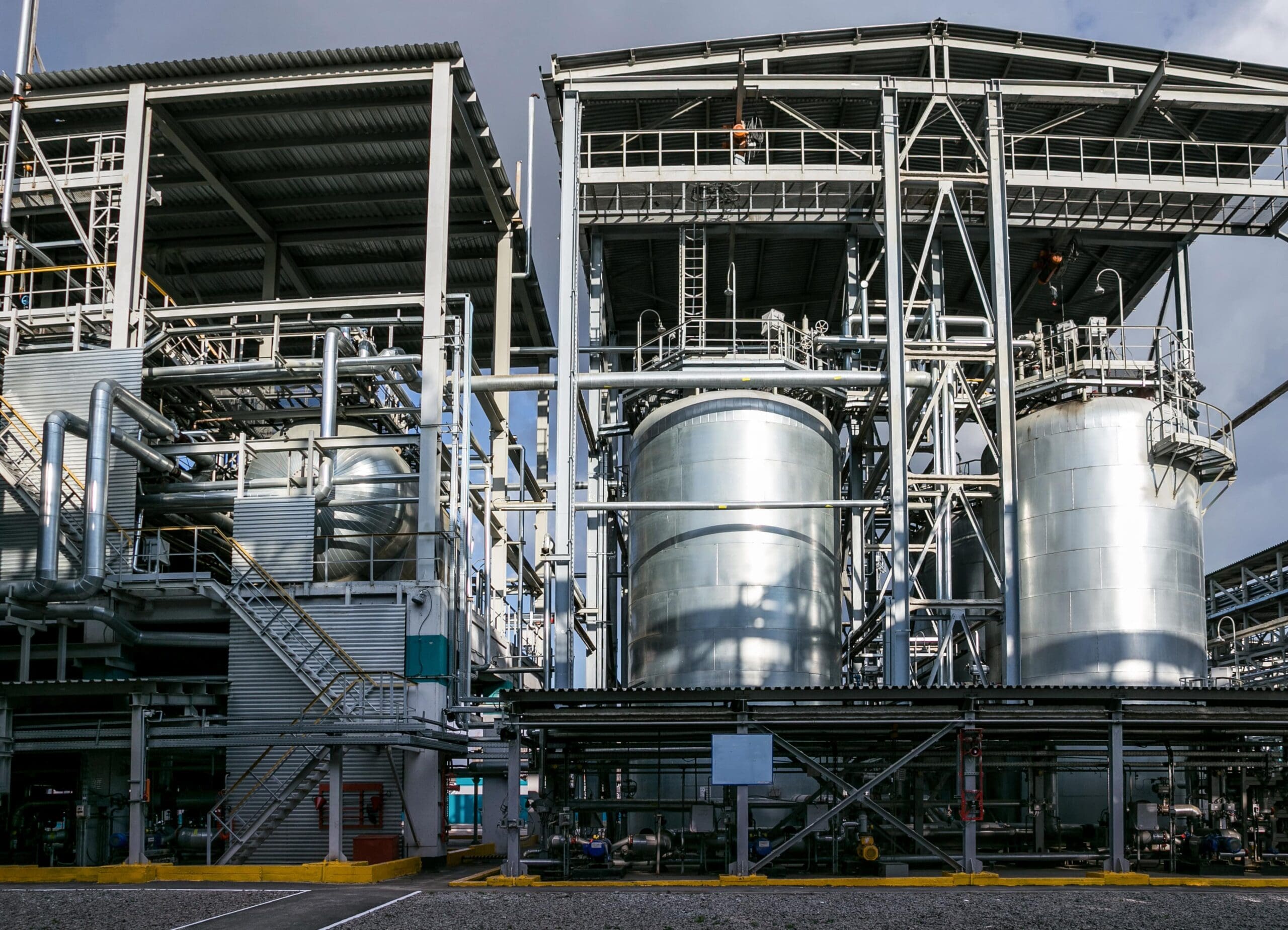
Explore sector
Petrochemicals, Oil and Gas
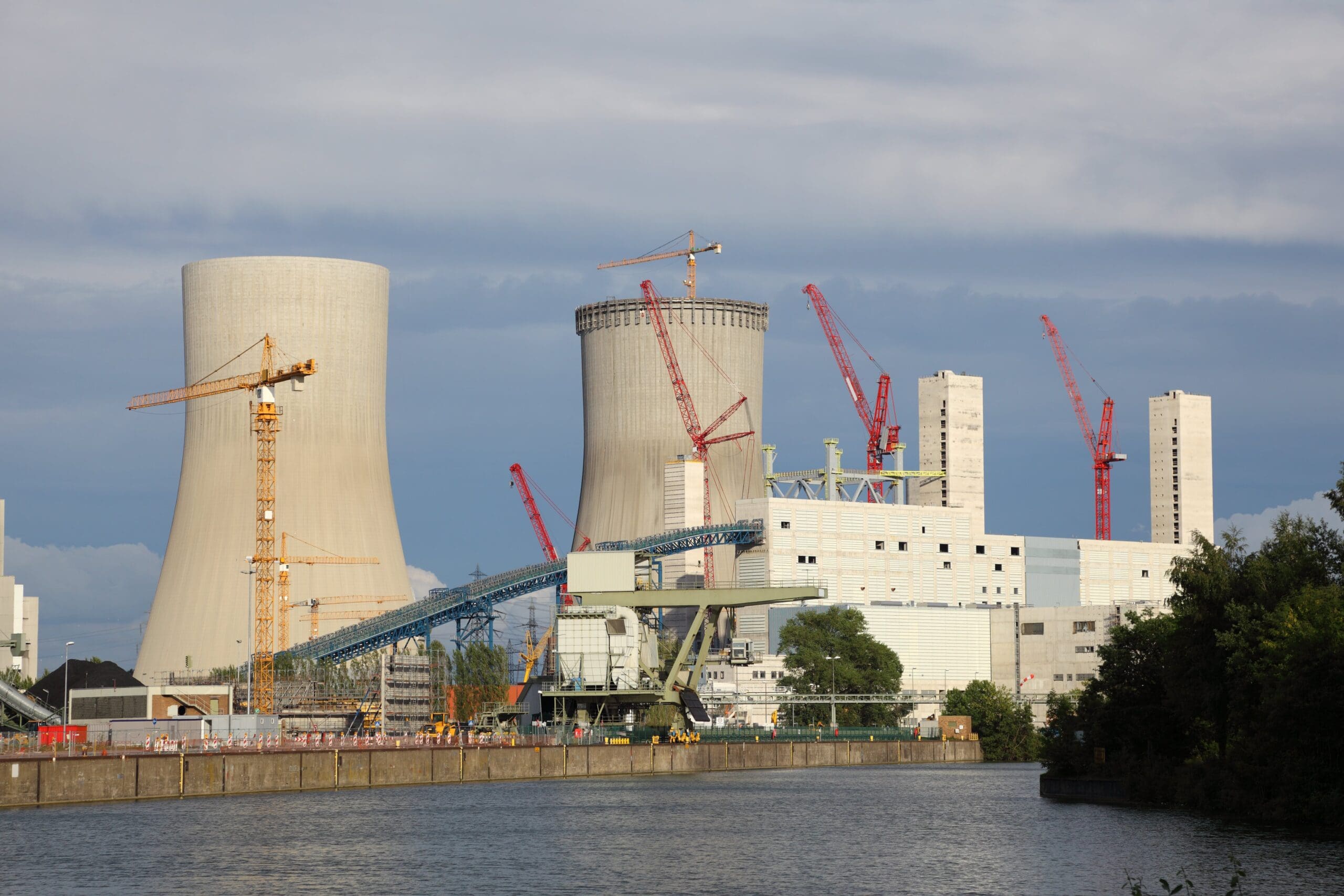
Explore sector
Power and Utilities

Explore sector
Rail

Explore sector
Renewables

Explore sector
Retail


Let’s talk. Ask us anything.
Send one of the team a message
Insights & news
Browse our latest articles
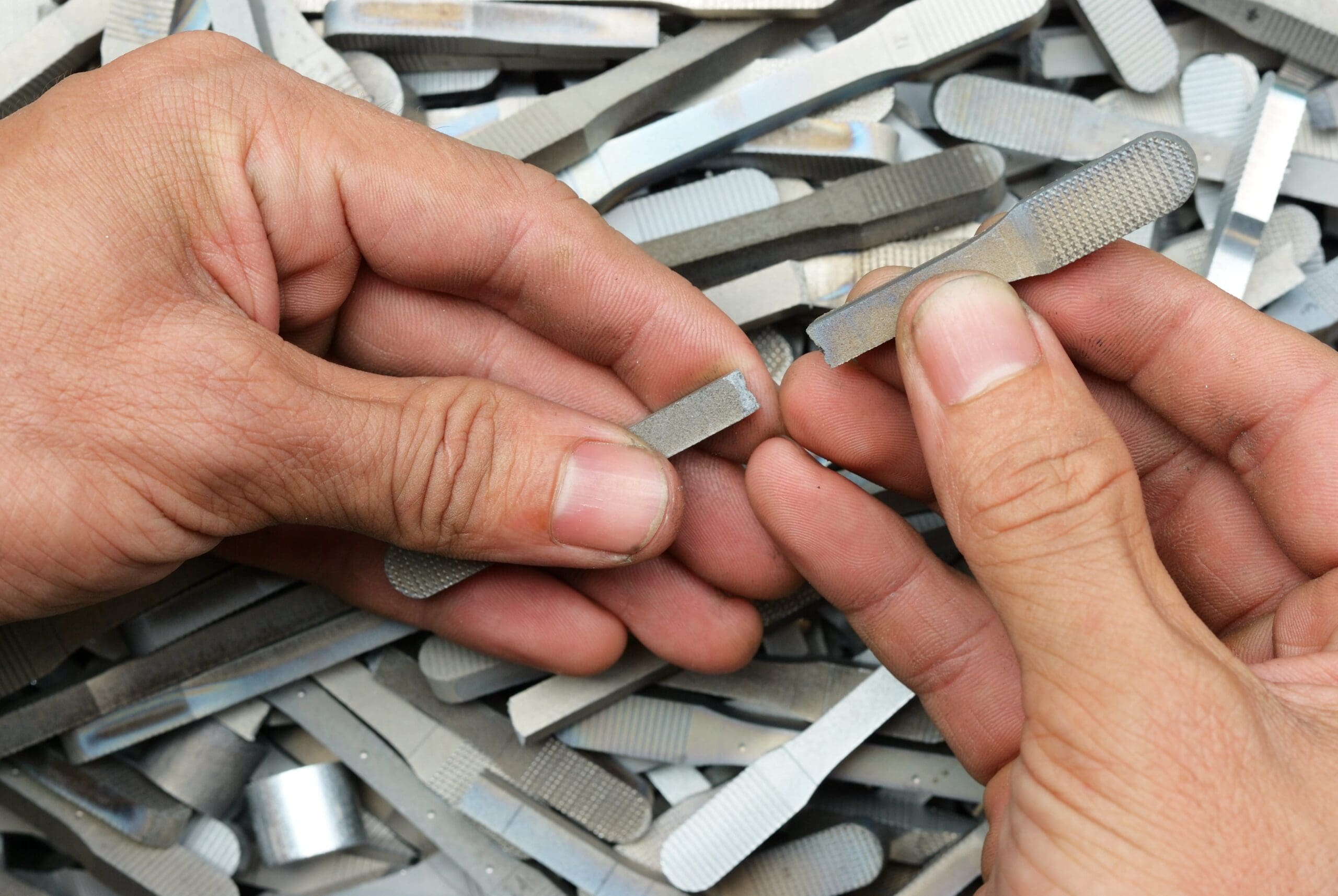
A Guide to Young’s Modulus and Material Stiffness
Testing

A complete guide to Metal Failure Modes and Analysis
Testing
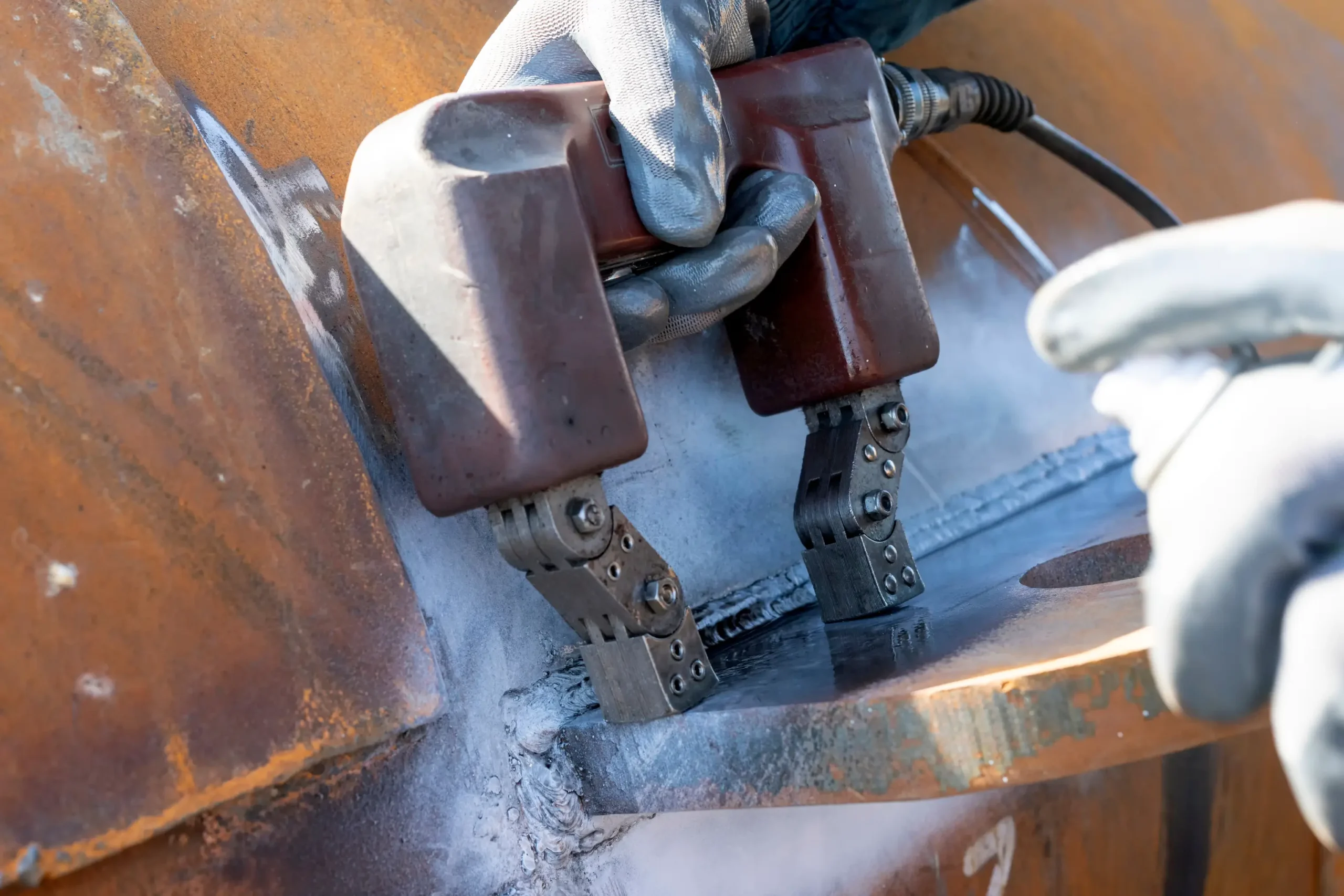
How combining NDT Methods ensures comprehensive asset protection
Testing

Factory Shutdowns: How to Manage Your Maintenance Operations Efficiently
Asset Reliability Electrical Inspection Testing
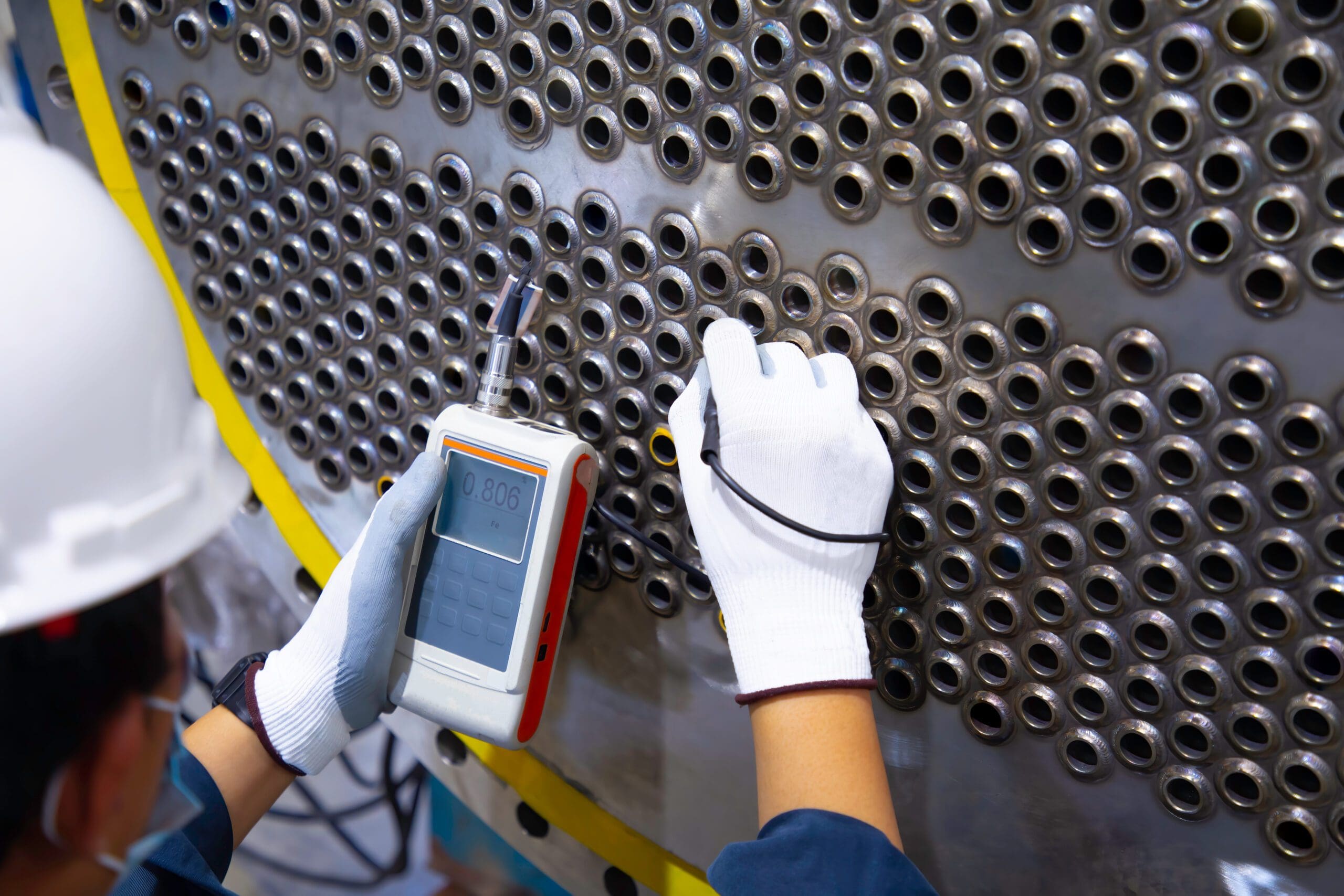
What Are the Different Methods of NDT Testing?
Testing
Other similar services...
Looking for something else? Explore similar services...
Let’s get you to the right person, fast.
Thank you, enquiry submitted!
Please check your inbox. We have sent you an email receipt of your enquiry.
We treat every enquiry with the upmost urgency. We’ll aim to get in touch with the relevant BES Group specialist and get back to you as soon as possible*.
Thank you again and have a great day.
 About BES Group
About BES Group Accreditations & Credentials
Accreditations & Credentials Our Environmental, Social & Governance
Our Environmental, Social & Governance Careers at BES Group
Careers at BES Group Our Senior Leadership Team
Our Senior Leadership Team




